The "normal" brain vs the ADD and ADHD brain
Diagnosing ADD and ADHD
 ADD and ADHD can still not be diagnosed by means of a measurement as can be done for a real disease like diabetes, for example. Of course, ADD and ADHD is not a disease, but a developmental disorder of the brain is assumed. This diagnosis can really only be made on the basis of symptoms. For example, symptoms like lack of concentration, impulsivity, hyperactivity, dreamy, busy-headed etc. It also looks at your past behaviour. This is often accompanied by consulting school reports and conversations with parents and/or acquaintances. As an extra addition, brain activity can be looked at, which is done through an EEG. This is mainly used in Neurofeedback therapy. When you finally meet the symptoms as described in the DSM-V, you can be diagnosed with ADD or ADHD.
ADD and ADHD can still not be diagnosed by means of a measurement as can be done for a real disease like diabetes, for example. Of course, ADD and ADHD is not a disease, but a developmental disorder of the brain is assumed. This diagnosis can really only be made on the basis of symptoms. For example, symptoms like lack of concentration, impulsivity, hyperactivity, dreamy, busy-headed etc. It also looks at your past behaviour. This is often accompanied by consulting school reports and conversations with parents and/or acquaintances. As an extra addition, brain activity can be looked at, which is done through an EEG. This is mainly used in Neurofeedback therapy. When you finally meet the symptoms as described in the DSM-V, you can be diagnosed with ADD or ADHD.
EEG
As I wrote earlier, a EEG map brain activity of the brain. It was found that all ‘normal’ people show roughly the same brain activity. Of course, you shouldn't compare an awake person with a sleeping person but if you compare 2 “healthy” people in awake state you will see many similarities in brain activity. A database was made of this and thus an average was established of what is considered ‘normal’ brain activity.
Abnormal brain activity
Now, when we look at the brain of someone with ADD or ADHD via an EEG, we generally see abnormal brain activity. This is not enough to diagnose ADD or ADHD as the averages are obtained from measurements over a whole group of people. Across the whole group, brain activity is different on average but if you pick out 1 person, he or she might just show much less abnormal brain waves. Also, people with depression, anxiety disorder, autism, asperger's, OCS etc. show abnormal brain waves. Even people who experience no symptoms in daily life can sometimes show abnormal brain activity.
But we can say, therefore, that we generally see the same differences in brain activity of people diagnosed with ADD or ADHD and those who do not have the diagnosis. If we compare these groups, we find that the people with ADD or ADHD have an underactive brain.
The “normal” brain and the ADD/ADHD brain
So in general, what are the differences in brain activity between a “normal brain” and an ADD and ADHD brain? You can read more about this below. The clearest differences in brain activity are in Theta and beta brainwaves.
Theta brain waves in ADD and ADHD
In an ADD / ADHD group, an above-average amount of theta brainwaves is mainly observed (Hermens et al., 2004; Mann et al., 1992; Chabot and Serfontein, 1996; Clarke et al., 1998, 2001; Lazzaro et al., 1998, 1999) This excessive theta activity is, as you have read earlier, accompanied by (day) dreaming. You are then unable to focus on tasks. So you cannot keep your attention on anything for long and suffer from concentration problems. So these are the attention deficit problems that a person with ADD or ADHD experiences.
Whether this is a disorder you can argue about. Such a person will experience all kinds of symptoms in everyday life but only when there are certain expectations. If you are expected to concentrate and complete tasks on time and pay attention, etc., you will soon experience problems with all their consequences. Not being able to meet these expectations can lead to insecurity and burn-out, because you always have to be on your toes to keep up. If such a person is creative, this excessive theta activity is a must. It allows you to use your creativity and intuition to the fullest and thus you can be a source of inspiration for others.
ADD / ADHD and beta activity
It is also notable that people with ADD or ADHD sometimes produce much slower beta brain waves. We also call these the high beta waves. The beta brainwaves allow you to perform well mentally when it comes to focusing on tasks and while talking and similar activities. At low levels of these beta brainwaves, you will have problems processing information. You will understand that this has a big impact on your daily life.
On the other hand, some people have also been found to have excessive rapid beta activity. These are usually the HD people who only suffer from hyperactivity.
How can I positively influence my brainwaves?
Fortunately, there is a lot we can do to get into a pleasant state of consciousness and produce brainwaves that optimise our ability to learn, relax, focus, sleep, etc., for example. It is also of course nice to produce brainwaves that make us feel comfortable and relaxed. These are mainly the Alpha brainwaves. So we are not always just at the mercy of our environment and what it asks of us. Learn more about all brainwaves read here.
Would you like to know what you, as an ADD, ADHD or HSP person, can do yourself to quickly and simply get your brain into an optimal state so that you can concentrate better and feel more comfortable and relaxed? Or, for example, to fall asleep more easily? Then be sure to read about Binaural Beats. You can read all about these Binaural Beats and to listen to these tones yourself to get your brain into the desired state of mind via the link below:
> How Binaural Beats make you relax and feel good!
Dear ADDs, ADHDs and HSPs,
I am Jochem and have been diagnosed with ADD and am a high-sensitive (HSP). Over the past few years, I have done an enormous amount in the field of self-awareness exercises and self-healing. Partly because in 2011 I suddenly found myself dealing with CFS/ME, or chronic fatigue syndrome, overnight. This was really a big turning point in my life which meant I really had to start working on myself from now on.
To recover, I did have to learn a lot about myself. So I pretty much went to every therapist, coach but also alternative healer you can think of.
During my search for the right help, I gained a lot of valuable knowledge that gave me very good insights and caused me to heal more and more. Now I actually see my ADD more as a strength and can live with it much better.
A book that really opened my eyes is "The Davinci Method" by John Loporto. He approaches all our traits in such a beautiful way. This is really a eye-opener For all people diagnosed with ADD or ADHD. This book was one of the biggest inspirations for me to start this website in late 2011. You can find more about John Loporto's inspiring book here. You can also see his inspiring video there in which he shares his message as an introduction to his book.
I hope this website will inspire you to look at the beautiful and powerful sides of ADD and ADHD, but of course also high sensitivity. Through all the information and tips and advice I give you the tools to be stronger with ADD, ADHD and HSP.
When you feel that spirit in yourself and are confident, you can be a person who can be very inspiring to 'normal' people. A person with a close connection to life, a rich emotional life, full of creativity, a broad thinking mind, a social being, reliable, humorous and with a very good intuition. The roles of feeling different will then reverse. But if you keep getting stuck and often think negatively about yourself, you will become more and more negatively laden and tired and the above beautiful qualities will mostly remain in the background.
On my website, I share with you all the knowledge I have. The knowledge that can give you as an ADD, ADHD and HSP person a positive spin on your life. In doing so, I share all the information I have learned from coaches and therapists and from books, documentaries and interviews.
You can read more about me on the about me page.
Happy reading ADDcharacteristics.net
Greetings, Jochem.
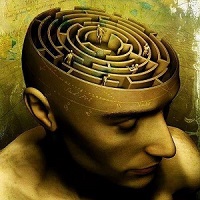
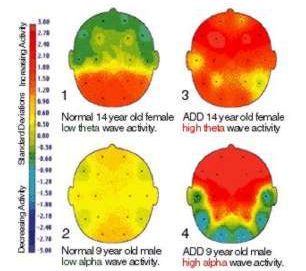
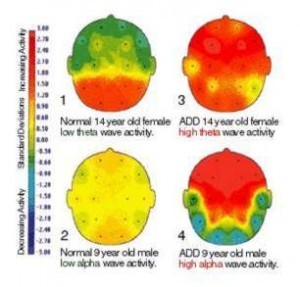
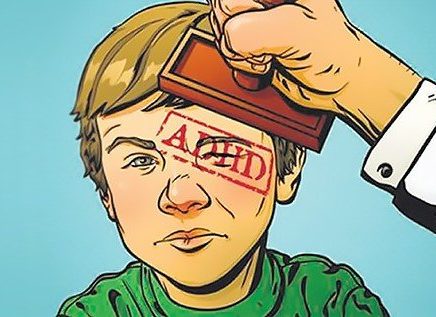




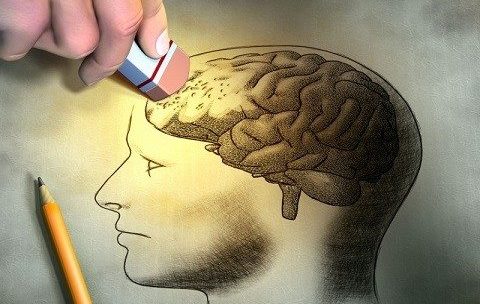
I had such a brain measurement done and indeed it revealed an add brain in me, I also suffer easily from anxiety and this also showed up there along with a sensitivity to addictions, all this often goes hand in hand with ADD.
Extraordinary to be able to see my symptoms reflected in my brain like this.
I had such qeeg even before the official diagnosis, I just knew I had add.
This was also shown by the EEG measurement I had an add/adhd brain, I actually find this measurement much more reliable than all those questionnaires and interviews, okay I meet 100% the characteristics but if someone doesn't have this then z'on brain measurement is decisive right?
Hi Sanne,
Such a brain measurement can be decisive but only from a measurement you cannot assume that someone has AD(H)D.
It strikes me that, unfortunately, there is generally a lot of talk about the negatives of ADD.
Don't forget that ADD has positives too!
Hi Frank,
Positive sides to AD(H)D are of course plentiful. Take a look here for a list of positive characteristics of ADD and here for 10 benefits of ADD and ADHD :)
Also be sure to read This inspiring story by John Loporto about the eagle as a metaphor for people with ADD and ADHD.
In the past, I wrote this article on AD(H)D in society where I also discuss the positive aspects of ADD and ADHD.
Enough reading material for a while? ;)
Greetings Jochem
Dear Mirjam,
I too am very curious which workshop you attended to achieve this result.
Greetings Lia
My thoughts on ADD, the diagnosis I received several years ago, have changed a lot in recent weeks.... ADD has made my life hell in a society where there was no room for who I am.
Expectation patterns that I could not meet with any possibility broke me to the ground. The ADD diagnosis gave me a reason why, and that helped me for a while. Understanding why I couldn't do what others, seemingly effortlessly, could. Still, ADD remained my weakness that I just had to learn to live with....
I was offered medication and counselling after the diagnosis but the counselling did not come and, being a true ADD-er, I did not pursue it myself either.... So the course of treatment and medication passed me by, thank God (I say now).
My turning point:
3 weeks ago, I did a workshop where my heart, which had been closed for so long, opened....
And therein lies the big change from how I look at ADD now....
By opening my heart, my ADD brain no longer works on its own but in service to my heart, I receive and can pass on information in a completely different way.
After all these years (42) of struggling, I now understand what I need this brain for and it is my greatest strength!
I hope that with my story I can inspire people to stop adjusting, letting yourself be numbed by medication just to get along in this society and start looking for your own truth.... Discover the power of your brain by following your heart and standing up for who you really are because you are exactly who you are supposed to be!!! 💚
Mirjam
As a side note, I would like to say that I am not against counselling or medication if that is what someone needs at a particular time because I know better than anyone how difficult it can be, just that it was not my path to walk.
My piece is more about inviting people to look for their (heart) strength because, ADD in my case, I have it for a reason!
Hi Mirjam,
Remember that you are so much more than just your diagnosis, it only says something about the things you find tricky or difficult. You are so much more than your diagnosis. You are a sister a daughter a...fill in the blank.
Ultimately, the diagnosis doesn't say that much, it's about how you organise your life so that you have little to no trouble with the things you find difficult.
I may join in the conversation, having ASD myself and with a segment of ADD. ;)
Greetings Jeffrey ( from the drum making weekend)
Hey Jeff!!! How cool of you to respond here!!!
And thank you for allowing me now to explain my message here even further.... It's because by fully opening my heart and really being who I am, I no longer have any symptoms!
My brain now receives information through my heart... And with that information I can help others because I can now feel what is going on at the energy level and translate that so that people can do something with it.... So that gives my head the work it's meant for... And with that, the ADD symptoms disappeared! Instead of being dreamy, lax, always late, chaotic, etc., I am now. Present, punctual, determined and organised. So I didn't learn to live with it but this diagnosis is literally my strength!
Love Mirjam
Hi Mirjam,
Want to share what the workshop is called and where to attend it?
Greetings Danielle
Good day Jochem,
For dutch i have to write a paper on adhd. could i use your piece of text as a source of information?
Kind regards Bram Mulders
Hi, yes you can. Otherwise, just send me an e-mail for exactly what you want. You can use the contact form for that.
Greetings Jochem